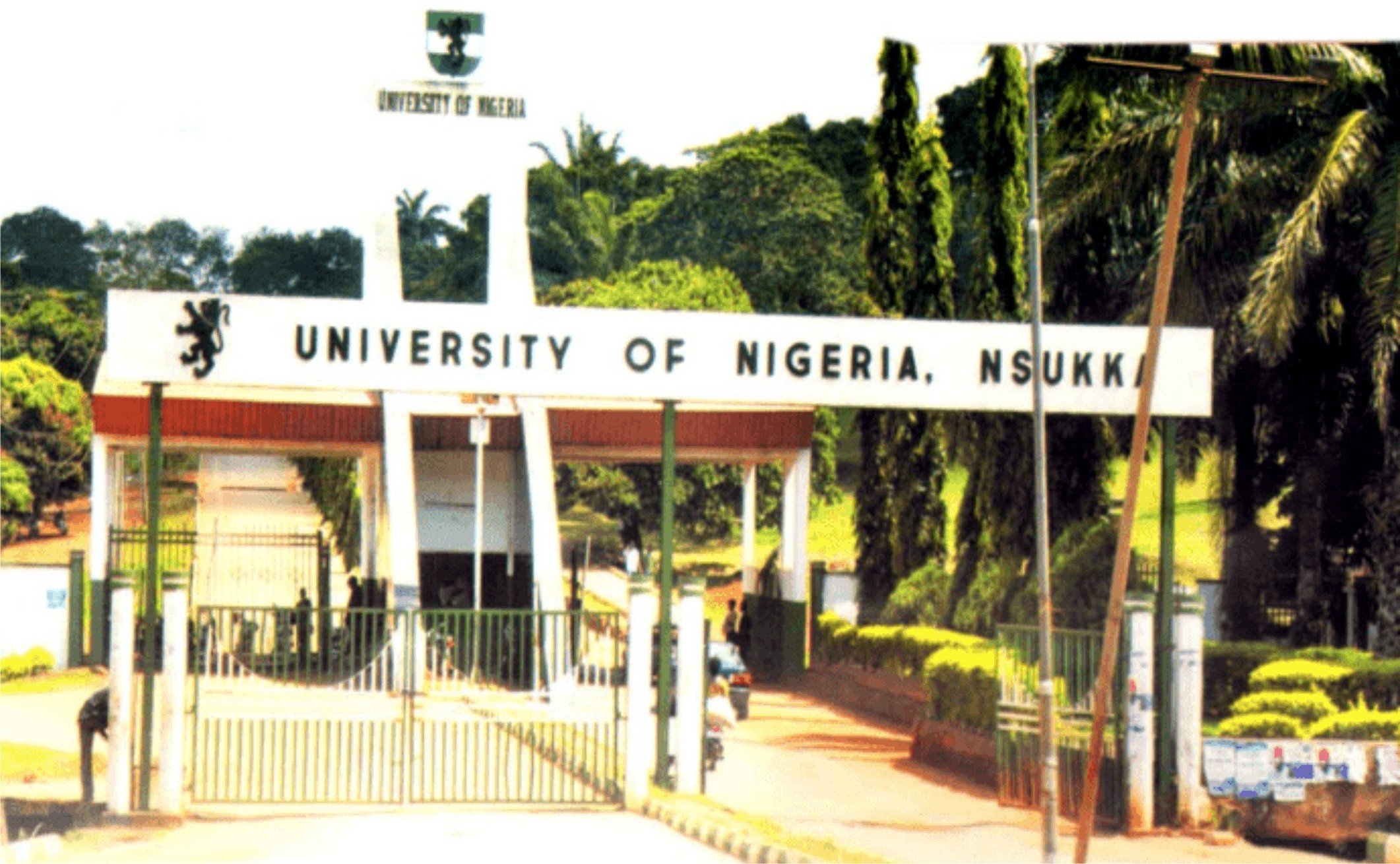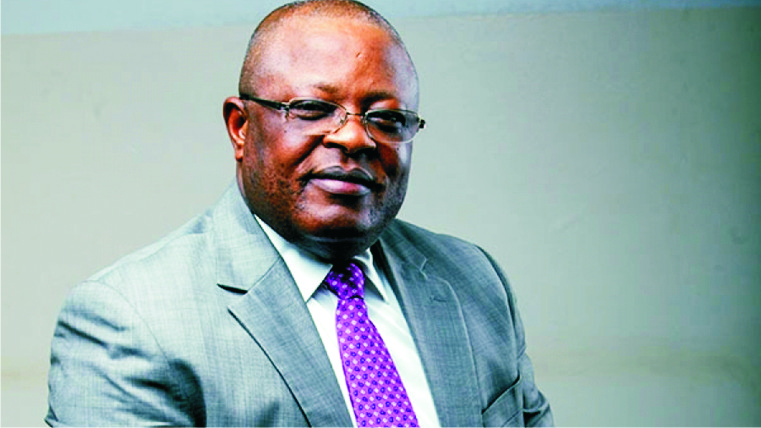Business
NGO Urges Intervention Fund For Energy Financing
The International Centre for Energy and Environmental Development (ICEED), has called on the Central Bank of Nigeria (CBN) to set aside 10 per cent of the power intervention fund for the “alternative energy financing” programme.
The Executive Director of the centre, Mr Ewah Eleri told newsmen in Abuja last Thursday that CBN, should ensure that the Nigerian Electricity Regulatory Commission also established a clear framework for the utilisation of the fund.
Eleri also called for the use of a proportion of the ecological fund to finance cooking energy; establish a donor’s platform on pro-’poor energy; and the mobilisation of civil society in providing community-level energy services.
He said that the centre, in its annual report to the Federal Government, suggested the need to support the access on the National Policy Agenda.
He said that the report presented new evidence of the growing energy poverty in Nigeria.
Eleri analysed the level of government, private sector and donor funding for energy services that would benefit poor people and review international best practice in expanding access to energy services.
He lamented that about 15.3 million households had no access to grid electricity, while 72 per cent of the population depended on traditional fuel wood for cooking.
“Contrary to the expectations of the National Energy Policy and Vision 2020, deepening poverty has forced a reversal in the transition to modern and efficient energy forms.
“Today, more Nigerians are climbing down the energy ladder moving from electricity, gas and kerosene to fuel wood and other traditional bio-mass energy forms,’’ he said.
Eleri also said that the Federal Government’s response to the challenge had been inadequate, and funding pro-poor energy access was in decline.
“The report finds a significant decline in political interest for expanding electricity services to rural areas.
“Even though Nigeria has embarked on ambitious power sector reforms, ensuring that electricity reaches the poorest has over the years taken a back seat.
“Not only is investments in rural electrification in decline, Nigeria has no history of providing annual budgets for cooking energy programmes,’’ he said
WHO statistics showed that about 95,300 Nigerians, mostly women and children die annually from smoke coming from the use of fire wood.
Business
Vets Make Case For Massive Investments In Agric Technology

Veterinary doctors have tasked governments at all levels and stakeholders to drive the agricultural sector with innovative and technological investments to upscale food production and boost food security.
President, Faculty of Veterinary Medicine, University of Nigeria, Nsukka, Alumni Association, Prof Lawrence Aka, made the call in an event in Abuja, following the current excruciating hunger and hardship Nigerians are grappling with.
In the event, which was focused on “Adopting Technological Innovations in Veterinary Practice, Livestock Production and General Agricultural Practices for Food Security, Economic Growth, Poverty Alleviation, Youth Employment and National Security”, Aka noted that agriculture, which is the backbone of human civilization, is at a crossroads, particularly in Nigeria.
According to him, agriculture is faced with challenges such as climate change, population growth, and diminishing natural resources, hence the need to reimagine and reinvent better ways to cultivate lands to improve national economy to nourish the people.
“The solution lies in innovation – leveraging technology to transform agriculture into a more sustainable, efficient, and productive sector.The subject of our discussion today is one that sits at the nexus of our survival and prosperity: ‘The adoption of innovative technology in agricultural production as a catalyst for economic growth and a pillar of national security’.
“In an era marked by rapid technological advancement, and our unique agricultural potential, agriculture remains the cornerstone of our economic stability and sustenance. Yet, it faces unprecedented neglect and challenges from climate change, population growth, resource depletion and lack of political will for its development.
“To navigate these challenges, we must pivot towards innovation and technology. This transition is not just an opportunity for growth but a necessity for our survival as a developing nation.
“There is no doubt that the current state of agriculture in our country does not match the potential it has in revamping all aspects of our existence as it relates to our economy, food security, youth empowerment, poverty alleviation and national security.
“The theme of this symposium has been chosen in recognition of the need for a diversification of our national economic agenda through an embrace of innovative and technologically-driven agricultural practices.
“Nigeria is uniquely blessed with enormous factors that positively drive abundant food production for local consumption and export.
“Unfortunately, this has hitherto been neglected to the detriment of improved economy, poverty alleviation, food sufficiency and national security hence the existing unimaginable level of poverty and youth unemployment. There is no dishonor in a country being poor.
Business
Telcos Fear Shutdown As Lagos-Calabar Highway Construction Threatens Cables

Barely 48 hours after Multichoice alerted subscribers to a three-day technical downtime, telecommunication companies have expressed concern over possible connectivity disruptions as construction advances on the 700km Lagos-Calabar Coastal Highway.
While the DStv and GOtv owner acknowledged the anticipated impact of the ongoing Lagos-Calabar construction project on their uplink facilities, telcos have expressed broader concerns emphasising the vital role of telecommunication service and the effect of possible anticipated technical disruption.
The Lagos-Calabar coastal highway corridor serves as a crucial landing point for multiple submarine cables connecting Nigeria to Europe
The cables, including the West Africa Cable System (WACS), MainOne, Glo1, ACE, and NCSCS, are vital for international communications and data transmission in the country.
The Federal Executive Council approved Phase One of the ambitious 700-km Lagos-Calabar coastal highway project in February, entrusting the task to Hitech Construction Company Limited.
The highway project was designed to connect Lagos to Cross River, passing through the coastal states of Ogun, Ondo, Delta, Edo Bayelsa, Rivers, and Akwa Ibom, before culminating in Cross River.
The demolition of numerous properties and recreational centres in Lagos has been carried out to expedite the construction of the highway.
In the light of the developments, telcos stressed the necessity of stakeholder consultations with the Ministry of Works to address potential risks and implement robust mitigation measures.
While dialogue with the Federal Government is yet to happen, telcos have warned Hitech Construction to exercise caution to prevent damage to critical national infrastructure.
Speaking to newsmen, the Chairman of the Association of Licensed Telecom Operators of Nigeria (ALTON), Gbenga Adebayo, confirmed that the Ministry of Works had yet to engage the telcos on environmental impact assessment.
The ALTON Chairman said the Ministry of Works, headed by David Umahi, had engaged some stakeholders but excluded the telecom operators.
“The Ministry of Works has not approached us, and I’m unsure if environmental impact assessments have been conducted. The route is crucial for the landing of numerous submarine cables, so caution is essential.
“Some members have reached out to them, urging caution. As the Chairman of the industry, I can affirm that ALTON members were not consulted regarding the assessment of the undersea cable within that right of way”, he explained.
Adebayo revealed that some of its members had written to the works ministry on the matter over the need for a dialogue. He, however, said the body had yet to get any response.
He added that the Nigerian Communications Commission (NCC) had been engaged to facilitate talks with the ministry.
“We’ve informed the Nigeria Communications Commission about this issue, and they are attempting to contact the Ministry of Works. However, I can confirm that neither we nor any of our members were contacted. This is on record. We were not included in the stakeholder consultations, and we’re concerned about the actions being taken”, he stated.
Business
Aviation Experts Chat Way For Sector’s Advancement
Experts in aviation under the auspices of Aviation Safety Roundtable Initiative (ASRTI) havae urged President Bola Tinubu to suspend taxes, tariffs and endless charges hindering development of the aviation industry in the country.
The Aviation Roundtable (ART) also called on Tinubu to initiate policies that would address airlines’ survival and growth with a view to lowering the swift increase in domestic airfares.
In a statement released at the end of its Business Meeting in Lagos, the ART President, Air Comdr. Demola Onitiju (rtd), called on the Minister of Aviation and Aerospace Development, Mr. Festus Keyamo, to constitute governing boards for the Nigerian Civil Aviation Authority, (NCAA), and other agencies in the sector.
“The ART has been a consistent advocate of NCAA’s autonomy consistent with the Act establishing it and global best practices. We do this to ensure that it is adequately insulated from short-term political pressure.
“In the Nigerian circumstances, the NCAA is expected to be both benign and harsh in its spontaneous enforcement of standards and rules to retain our trust.
“In order to create a conducive environment for aviation and tourism to thrive, the ART urges the renewed hope agenda of President Bola Tinubu to initiate deliberate policies to review and suspend taxes, tariffs and charges (within a given time frame) in order to bring succour to aviation and allied businesses in Nigeria.
“Such policies should address airlines survival and growth with a view to lowering the recent astronomical increase in air fare on the domestic scene.
“The Consumer Rights Protection directorate in the NCAA should live up to its billing in ensuring maximum comfort and compensation for the traveling public promptly where infractions are established”, he stated.
Corlins Walter
-

 News5 days ago
News5 days agoMonarch Warns Youth Against Political Crisis In Fouchee
-
Entertainment4 days ago
Mavin Records Celebrates 12Years Anniversary
-

 Politics4 days ago
Politics4 days agoReps Urge FG To Pay ASUU, NASU’s Withheld Salaries
-

 Nation17 hours ago
Nation17 hours ago138.9m Nigerians Need Interventions Against Tropical Diseases -WHO
-
Politics4 days ago
2027: Plan On Course For Mega Party –Utomi
-
Sports4 days ago
Rivers Hoopers Stay Unbeaten, Qualify For Next Stage
-

 News18 hours ago
News18 hours agoTinubu Salutes Justice Odili On Birthday
-

 Rivers17 hours ago
Rivers17 hours agoRSU Student Wins N10m, Car In Reality TV Show

